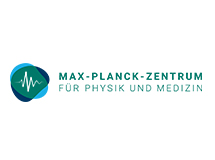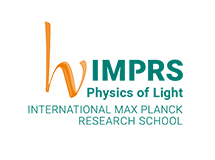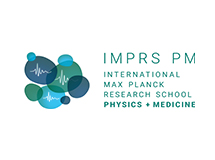We're looking for a Data Analyst!
The Biological Optomechanics Division at the Max Planck Institute for the Science of Light is looking for a
Data Analyst / Machine Learning for Medical Diagnostics (m/f/d)
About us:
Cells are the basic entities of biological systems. They have particular physical properties, which enable them to navigate their 3D physical environment and fulfill their biological functions. We investigate these physical – mechanical and optical – properties of living cells and tissues using novel photonics and biophysical tools to test their biological importance. Our ultimate goal is the transfer of our findings to medical applications and to improve cell-based diagnostics. We are a highly interdisciplinary research group and value an open culture of knowledge transfer.
Project description:
A large fraction of our research centers on real-time deformability cytometry (RT-DC), a high-throughput microfluidics-based imaging technique for cells. With RT-DC, we can rapidly measure vast numbers of cells, identify cell types (e.g. in blood), and characterize them optically (via their bright field image structure) and mechanically (via their deformation due to microfluidic shear stresses). In proof-of-concept studies, we have demonstrated that RT-DC data signatures are sensitive to pathological changes during diseases.
With this project, we are bringing RT-DC to the diagnostics field. As recipients of the Medical Valley Award, we are setting up a 2-year long project starting in January 2021. In collaboration with the Department of Pediatrics at the University Hospital Erlangen, we will perform large-scale RT-DC measurements of thousands of patient samples within the routine diagnostics framework. Our aim is the identification of RT-DC signatures for various health conditions, which will be the basis for the development of a powerful new analysis tool capable of revolutionizing cell-based diagnostics. A later commercialization of the results is anticipated.
Job description:
We are looking for a data analyst with a background in image analysis and machine learning who is interested in (literally) bleeding-edge medical diagnostics techniques. You should hold an advanced degree in computer science or a comparable analytical field. You are eager to engage with problems whose solutions are not yet known. You want to broaden your background in medicine and work with actual patient data.
You should be fluent in Python and have experience with numpy, scipy, scikit-image, scikit-learn, opencv (tensorflow/ keras/pytorch is a plus). Ideally, you are already a Python package maintainer and are familiar with test-driven development, the python enhancement proposals (e.g. PEP8), and code documentation (e.g. sphinx). You should routinely use a distributed versioning control environment such as Git and be familiar with the Linux command line. Your tasks will include:
- Image analysis and feature extraction from RT-DC image data collected at the diagnostic laboratory
- Application of supervised machine learning techniques for the identification of disease conditions from RT-DC data
- Development of data analysis pipelines with proper code documentation
- Development of suitable visualization methods for the communication of findings (e.g., using dimensional reduction methods)
The project duration is for initially 2 years, with the possibility of extension. Would you like to become part of us? Apply here by 30.11.2020.
The Max Planck Society strives for gender and diversity equality. We welcome applications from all backgrounds. Furthermore, the Max Planck Society is committed to increasing the number of individuals with disabilities in its workforce and therefore encourages applications from such qualified individuals.





